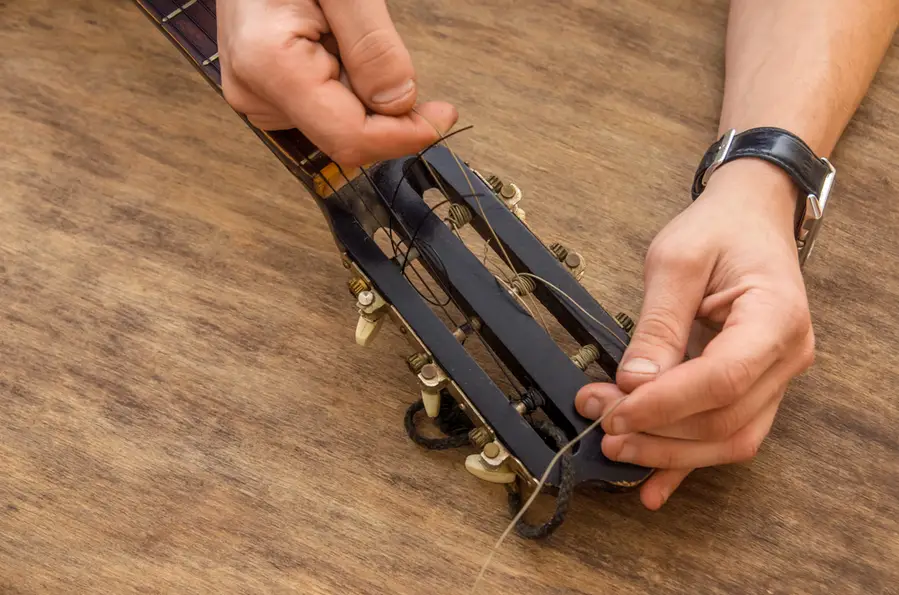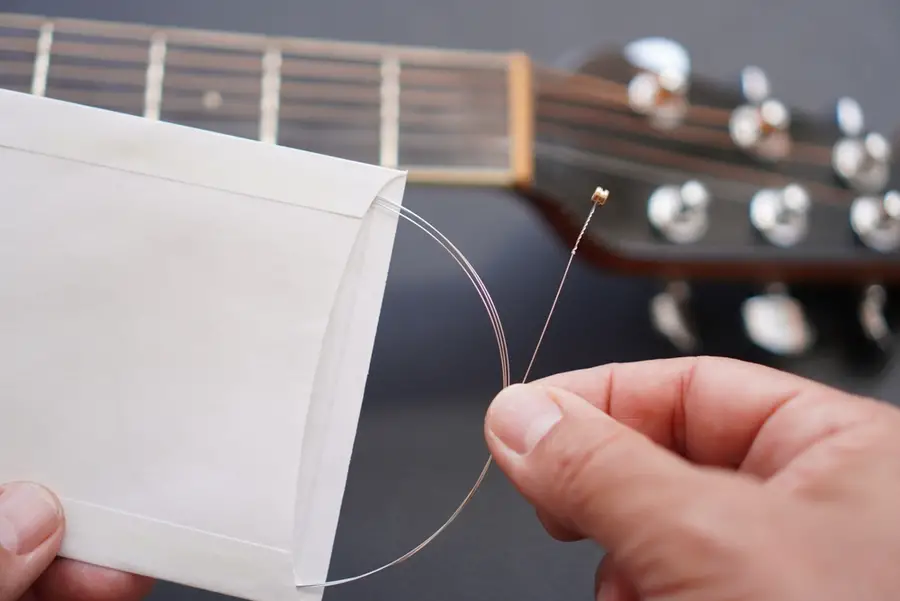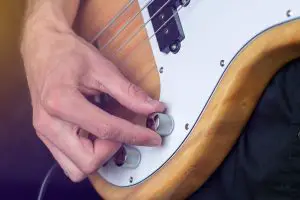
Are you a new guitarist wondering how long guitar strings last? Well, any guitarist will tell you that you will often need to change your guitar strings. However, multiple variables will determine your guitar strings’ life span.
But how soon would you be required to change the strings, and how long can they last?
Generally, the guitar strings last between one and six months. Their exact lifespan is determined by the quality and the frequency of playing. Other factors, such as string size, the intensity of playing, and how you care for the strings, will also affect their longevity.
Read on to learn the signs that show you when to change the strings. You will also learn why there are guitarists who change their guitar strings more often than others and what you can do to prolong the lifetime of your strings.
4 Signs You Need To Replace Your Strings

Your guitar may not be able to talk. It will, however, show you when it needs new strings. You should therefore pay attention to it to know when to give it new strings.
Breakage
Have your guitar strings started to break? It’s probably time to change them. Most guitar strings that start breaking are usually the older ones. The new ones are not so likely to break. One or more strings can break, and breakage is unavoidable.
When the strings start breaking, restringing is often the only option. You can use any single matching string.
However, it is best to change the whole set. This way, each string will match the type and the size of the set.
Tuning Problems
You can experience tuning problems with both new and old guitars. It is, however, easy to solve such problems with new strings than with older ones.
For new guitar strings, stretching them slightly during the first few times of use should make them sound fantastic. And they should stay so long enough until replacing them is the only option.
After a few weeks, the strings may stop holding tune consistently. When this happens, it shows that your guitar strings need to be changed. You can therefore change them to avoid more distortions.
Discoloration
Look at the appearance of your guitar strings. Concentrate on their color. Does it look the same as it did during the purchase? If the color is different, then the guitar strings are probably in their last days.
When playing your guitar, the oil from your hands will move to your guitar strings, accumulate, and build upon them. Once this happens, your guitar strings will be prone to corrosion and even breakage.
If your guitar strings are made of steel and nickel, check if they have started turning gray. If they are bronze acoustic, check whether they still have their shine or they have turned brown. These color changes are usually natural and indicate that guitar strings need to be changed.
A Dull Tone
New guitar strings have a bright and crispy snap. They sound so well that some guitarists keep changing the strings to keep up with the sound. Those who prefer mellow tones, on the other hand, usually let their guitar strings grow a little older.
Whatever your preference is, ensure that you replace your strings when they start sounding dull or flat. They could be broken, or they could be too old to be utilized.
Stiffness
Guitar strings are usually flexible and bendable unless they are heavy-gauged. Over time, however, these strings may lose their flexibility and bendability. They start feeling stiff because of corrosion.
Stiffness does not mean that the strings may break immediately. It is an indicator that your guitar’s playability is lost. For this reason, you may want to replace your strings.
Why Do Some Guitarists Change Their Strings Frequently?

Some guitarists replace their guitar strings after each performance, in a few weeks or monthly. For recording guitarists, this may be unavoidable.
Why? Because you want the best outcome for your gig. You don’t want to produce a dull tone or break a string.
But does every guitarist need to replace the strings every week or month? Absolutely not.
Remember that the more you change them, the more money you spend. And the richer you make the string manufacturers.
Avoid changing them because everyone is doing so. Change them because the tone is perhaps dull, they are broken or stiff, or you are facing tuning issues.
3 Ways To Prolong the Lifespan of Your Strings

While it may not be possible to prevent your guitar strings from degrading and aging, you can make them last longer. The tips below will help you achieve this:
Ensure Your Hands are Clean Before You Play
This may be an overkill for most guitarists. But you want your strings to last longer, right? Then don’t play the guitar without washing your hands with water and soap.
Hand washing will help remove oils from your hands. Otherwise, these oils may go to your guitar strings, accumulate, and eventually corrode them.
Clean the Strings After Each Use
This is another way through which you can extend the lifespan of your strings. Simply take a microfiber cloth and wipe the strings down after every use.
Cleaning the strings will help remove sweat, oil, grime, and any other debris that may build up and affect the strings’ tone.
Use a Guitar-String Cleaner
There are different products designed for string cleaning. These include:
- Dunlop string conditioner
- The string cleaner by ToneGear
- Maxcheer Guitar String cleaner
- MusicNomad String Fuel
If you cannot afford them, don’t worry. This step-by-step guide will show you how to clean your strings with or without them.
Bottom Line
Guitar strings can last anywhere between one and six months. There are different signs which indicate that your guitar strings need a replacement.
These signs include breakage, tuning problems, discoloration, a dull tone, and stiffness. Some guitarists, especially the recording guitarists, may choose to replace their strings after each performance.
However, you don’t have to do so if you are not a recording or performing guitarist. Use the tips above to care for your guitar strings, and they could last longer.









